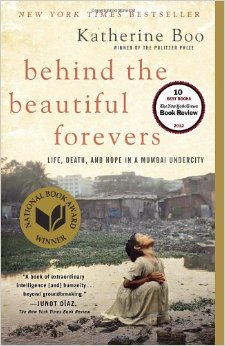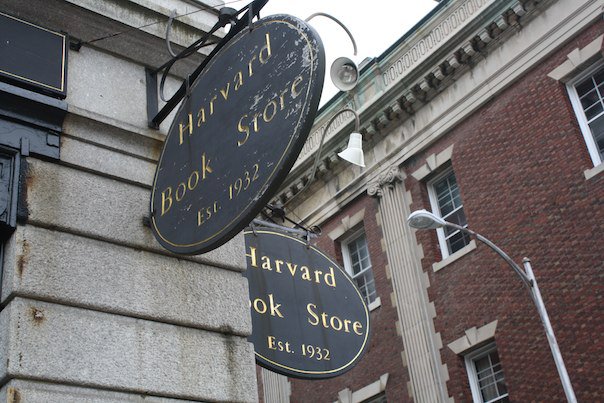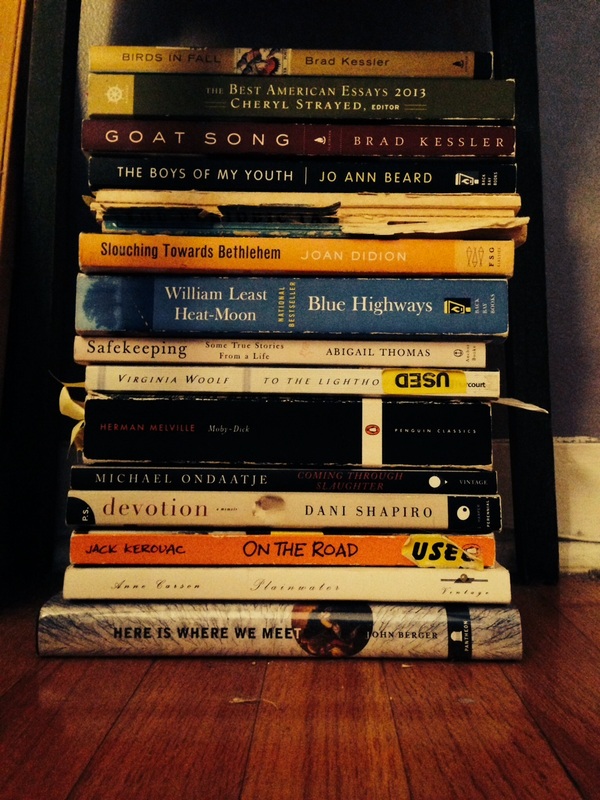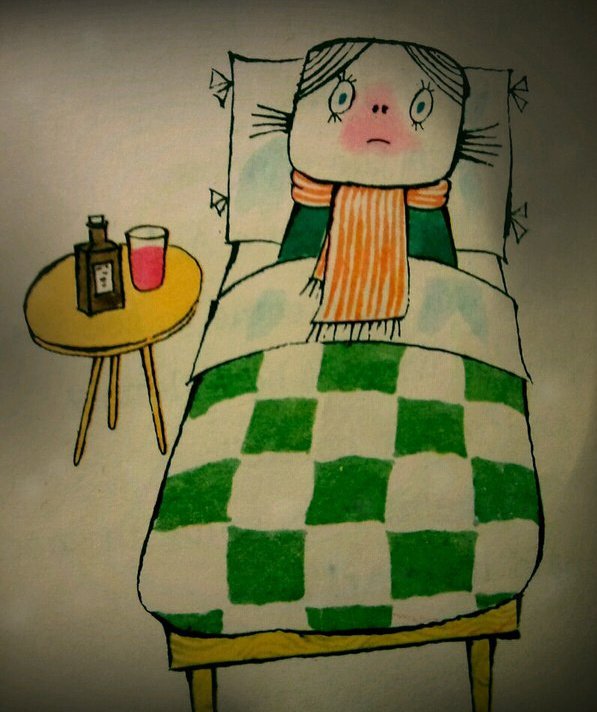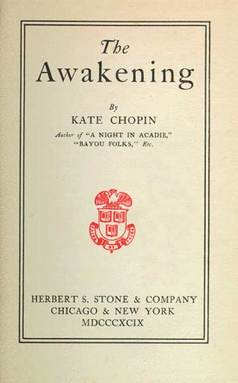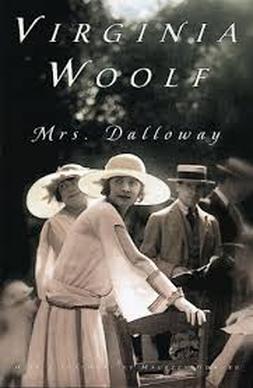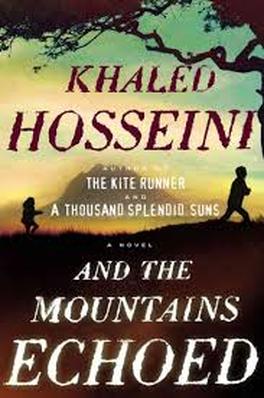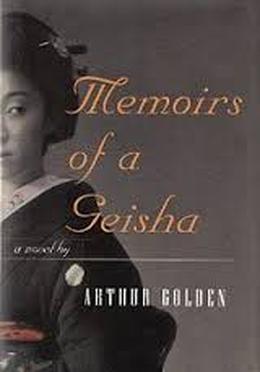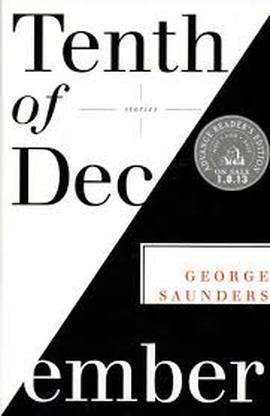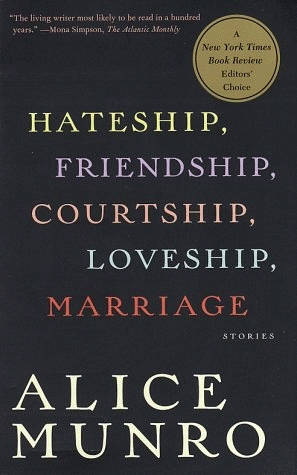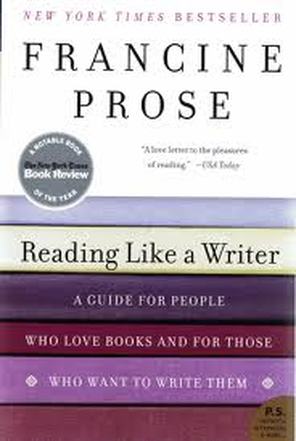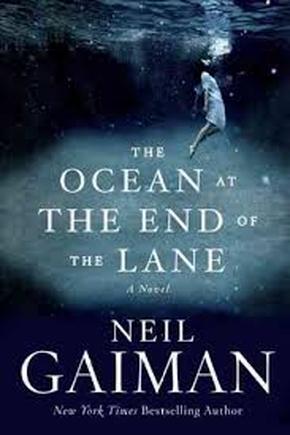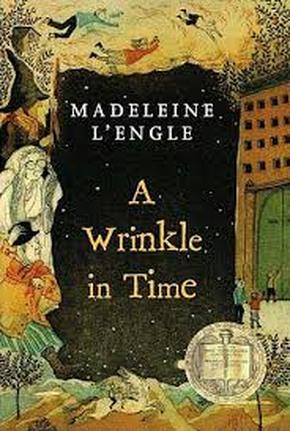|
This morning, at 2:44, the northern hemisphere tipped into winter. Later, when we woke, Darby whispered, "Do you hear the rain?" The drops here are so soft, but with no hope for snow, rain is our favorite. They are often just a misting, no louder than a snail's movement. I tried to listen, but my thoughts were too loud for such a gentle sound.
I'd woken early, as I do lately, and had been thinking about my book manuscript and the writer Abigail Thomas, because last weekend I was in Portland, OR for Lidia Yuknavich's writing workshop and had gone straight from PDX to Powell's City of Books, bought Abigail Thomas's newest, along with a bunch of other things (note: always travel to Powell's with a suitcase and room to spare), and then woke at 4 a.m. each day of the workshop to work on the fifth round of my manuscript revisions before Lidia's sessions began. After the weekend workshop ended, on the flight home, I started the new Thomas and remembered that her book Safekeeping had been the one, nearly three years ago, that tipped me into writing the particular manuscript I spent the weekend revising. Reading Safekeeping had helped me figure out a way to write my own material, which became a book, and which is titled, for now, Shiva: a memoir concerto. In the drafts since then, I'd forgotten all about Safekeeping and how it had been my portal. Then, yesterday, while back at home and cleaning out some computer files, I stumbled upon the first draft of my book, the one I'd started right after reading Safekeeping. It was like bumping into a three-years-younger Arielle. I was still in my thirties, I'd barely begun my MFA program. Now I can't hear the rain outside on this winter solstice because I'm in a weird time capsule conversation with my younger self, my current self, Abigail Thomas, and Lidia Yuknavich. You can see why it's loud in here. But this morning is the winter solstice, and with the mention of rain my thoughts shifted. Darkness, literal or figurative, reveals things not otherwise visible. The moon, the stars, the shadow-self. It is a dark time in American history. A childhood friend, whose family fled from Moscow in the 1980s, has been writing on social media lately about her sense of loss coming out of the election and the electors' vote this week, her loss of trust and faith in America, in Americans, in our democracy. It doesn't take a Russian-born to say it, to know that's how many of us are feeling. And it's small comfort that the majority of voters share our values when the loser is the winner of the presidential office, and the winner has no platform to unite us. America has taken a strange turn: we are steering toward icebergs. Allied international leaders growl sternly: danger, stay. The ACLU has taken to full-page letters forewarning prosecution. Already, in this new American darkness, we are seeing parts of ourselves that we weren't able to see in the light of an Obama administration. We don't want darkness, and we mean it wholeheartedly. But like the solstices of winter and summer, dark and light cycle in and out. And in the dark, we see stars. In the Harry Potter books, when Voldemort gains strength and the Death Eaters emerge from their hiding holes emboldened to flaunt their racist, xenophobic bigotry, Harry and his friends unite as a secret Dumbledore's army. Dumbledore has left the scene and knows nothing about the D.A. Without their wise leader, Harry reluctantly teaches his comrades how to fight against wrong. He has no experience teaching, they have no experience fighting. They are children, after all, but they lead the defense against the dark forces of evil. Now, as the eloquent, wise, educated Obama family and administration leave their post, many of us feel poorly prepared for the fights that we face. But as Harry and his friends find themselves fighting against wrongs they might previously have turned away from, you and I are now faced with our core values, passions, strengths, and, hopefully, we will re-discover the power of a group when it is willing to come together. At the end of Lidia's workshop, one of the editors at Connotation Press asked some of us to record on video a minute or two about some uplifting or optimistic aspect of this current political climate. I wanted to participate, but in the end I made some excuse and walked away. Any positivity seemed pollyanna. I didn't feel that I had any new perspective to share. The next day is when I stumbled on the old computer files, and this morning is when I woke in dialogue with my younger self. We live moving forward in time, our past with us but invisible like stars in daylight, filed away in drawers we rarely open. What I might have said for the video is that maybe it was time for dark to remind us of our deepest, oldest mores, the ones beyond our daily living, that guide our every rule. Maybe it was time to start fighting for them, not just for the greater revolution, but for our own personal evolution. Here we are, the longest night of the year. Hello, darkness, my old friend. I've come to talk with you again. Let's get quiet for a minute, still. We are made of stars and dinosaur bones, heartbreak, and the strange ever-temporariness of time. This is an era of darkness: there is no fighting that fact. While here, we must strain our eyes to see what wasn't apparent before. Turn them inward. Turn them outward. We must point the telescope beyond the horizons we thought we knew, build fires of passion, burn whatever we must to warm this chill, give socks and soup to the hungry and homeless, send letters and money to those on the front lines, listen to stories at the campfires, invite strangers in, and hold on tightly, tightly, tightly to the ones we love. I'd be remiss if I didn't tell you about three things: First, the Yoga & Creativity Retreat is next month! We moved to a larger estate -- a gorgeous spot in Ojai, CA, perfect for a weekend of yoga, campfires, introspection, and delicious meals -- which opened up a few spots. Darby and I have been creating this retreat for a long time, but it's taken on new levels of importance since the national election outcome. We cannot think of a better time to join together for reflection, community, and creative inspiration. We'd love for you to join us January 20-22 in Ojai to practice yoga and create new visions for 2017. Other than location, the original plans are all the same: four yoga sessions; several creativity workshops; a wine tasting on Friday night; time for writing, optional massages, or hikes on Saturday; and a campfire circle on Saturday night. The poet Mary Oliver asks, Tell me, what is it you plan to do with your one wild and precious life? In Ojai we will ask, What is it we each plan to do with our one wild and precious 2017? Every year is a new gift, and 2017 will surely hold its own surprising beauty. Second, my little piece about stepmothering and pie (with recipe), "How to Make an Apple Pie," has finally been published by From Sac, a print journal in Sacramento. If you're up there, keep your eyes peeled on the news stands. You can also purchase a copy here. It's over 200 pages of stories and photographs, and only $12. I hope you'll support the independent press. Lastly, during my MFA work, I was honored to be selected to serve as Editor-in-chief of Lunch Ticket, a well-known and well-loved literary and art journal. The new issue, Winter/Spring 2016, was published last week, and then I passed the baton to the new editor. Do check out that issue - I am proud of the whole staff that pulled it together and love every piece that we published. Here, also, is my final Word From the Editor. Wishing you love and light throughout the holiday season, Arielle
0 Comments
It occurred to me today that in these past three years of MFA study, I've read a helluva lot. To keep track of it all, I've written short annotations on all the books and many of the essays. A bit dry and with a bent toward writing craft, nonetheless I wonder if these annotations might be useful to anyone. Here I offer up one of these annotations from a favorite book I read in my second semester.
Boo, Katherine. Behind the Beautiful Forevers. New York: Random, 2014. Print. Behind the Beautiful Forevers, National Book Award winner and New York Times Bestseller, is a book-length narrative work of investigative journalism into the lives of the residents of one of Mumbai’s many undercities, Annawadi, and the corruption, pollution, and culture in which they live. Themes of the book include issues specific to India in the age of globalization - class inequality, the caste system, corruption in the Mumbai judicial system and in the local and international social service organizations meant to serve, dynamics between Hindi and Muslim residents, child labor, health and sanitary conditions of the slums – and universal questions of morals, values, basic human needs, hope, despair, and ambition. Katherine Boo’s writing is intelligent, thought-provoking, illuminating. This book came from her immersion in Annawadi over the course of four years, and relies on direct observation, more than three thousand official public records, and interviews. While this story focuses on Annawadi, Boo underwent her study in the hopes of answering questions about the structure of opportunity in Mumbai, the government’s social and economic policy, and by what means a child might grow out of the poverty cycle in which s/he was born. Boo chose Annawadi because of its sense of possibility, due to its placement next to the airport amid surrounding wealth and corporate encroachment, and because its small scale allows door-to-door household surveys, which helped her differentiate between isolated problems and widely shared ones. What makes this a phenomenal book is Boo’s exemplary storytelling. She opens the narrative in a moment of crisis for the central family, the Husains. The crisis serves as an immediate glimpse for the reader into the tight quarters, filth, and rampant multi-leveled corruption in which Annawadi’s residents reside. Couched within the narrative arc of the crisis - what led to it, how it plays out, the ultimate resolution along with its wide-reaching yet, for Annawadi, unremarkable residual effects – the reader gets an intimate view of individuals who live in the slum, their external and internal struggles, and their hopes and desires. The innovative way they strive, with whatever scraps of resources they have at their disposal, to rise beyond the walls of the undercity and into the middle class of Mumbai, brings a universal theme of overcoming adversity to an audience of readers who, ultimately, relate to the people living in this tragic poverty. this piece originally appeared on Lunch Ticket (June 6. 2014), the literary magazine of Antioch's MFA program: http://lunchticket.org/bookstore/ My favorite Boston bookstore—my singular favorite in a city purportedly abounding with more bookstores per square mile than any other—is like a reversed Narnia wardrobe. When I think of it, there’s a wide glowing window display and thirty minutes disappearing faster than a J.P. Licks frappe. Those thirty minutes would be, of course, window-browsing moments. Step inside Harvard Book Storeand delightful minutes in the shop would translate to hours gone by in the outside world.
In my thirteen years as a Bostonian, I often bathed in the warm glow of the Boston Book Store display. Nothing fancy: no bells, whistles, or tourist traps splayed with the university logo. Just a series of windows along the Mass Ave. sidewalk set with new releases, best sellers, and staff picks. Curious portals to new worlds and ideas. Despite the adage, I found cover art mattered. So did font. A book in the window with an interesting cover could pull me through the heavy front door into the stacks. If I didn’t have more than a few minutes on my slushy commute, I’d scrawl titles in my journal. Middlesex. Me Talk Pretty One Day. The Lovely Bones. Often, I did find minutes to spare for an inside browse around current titles. A jaunt downstairs to the used collection. I’d wander around a bit until a cozy section seduced me, and there loosen my scarf, unbutton my coat, let my bag fall to the floor. Sometimes I stood propped against a bookcase as my eyes scanned the spines. Many times I’d tuck away in a corner, fold myself small on the floor, limbs piled together, so other patrons could step over me while I travelled through narratives of other lives, other eras. Time slipped by in those visits. In the face of books and stories, the universe felt endlessly expansive. But, eventually my stomach would rumble and my feet start begging to get out of those damn boots. In the last few minutes I’d stop at my touchstone, Fiction – W: every visit I was sure to check the Jeanette Winterson shelf. I don’t know why I did, but because of her I discovered other writers nearby: Sarah Waters. Alice Walker. Jeannette Walls. Ah, the beauty of a bookstore. All over Cambridge and Boston were independent book and music shops alike, and cafes to sit and read. The streets were lined with shops offering respite from the cold. Shelves stacked with imagined worlds to warm the soul. It was a glorious place to live for a girl like me, amid a culture of people who loved books, music, and cafés. Meanwhile, Starbucks had arrived. Up and down Mass Ave., independent cafes—along with their weekly open mics—began to close down. Napster showed up, and record shops shuttered. Even through this shift, bookstores remained, and I remained oblivious to the corporate restructuring of the book and music industries taking place across the rest of the country. Despite the intellectual colonization that was streamlining America’s interests, Boston’s book and literary culture thrived. Sometime in the mid-aughties, I left New England. I had a combination of bitter cold weariness, dark days depression, and an itch for something new. Barely sure where Los Angeles was in the general scope of “southern California,” I headed west. On the way, my best friend called from San Francisco. “I can’t wait to hear you tell me how much you love February,” she said. Sure enough, two months into SoCal living, I texted her from Santa Monica. It was February. The sun was hot on my shoulders. I was barefoot on the beach. I was smitten with the Golden State. I’ve been in Los Angeles for eight years now. I love this town, and I love February—I’ll shout it from the Hollywood Hills. (I probably have.) There’s inspiration tucked into every side alley. Songs and stories in every guest house. I could write through the endless summer about all the things I adore about this town. But oh, I do so miss those Boston bookstores. Here in L.A. I understand why people leap to Amazon. I understand the one-stop-shop online easy-peasy lemon squeezy la-dee-da. It’s cheap. It’s fast. It’s practical. One Friday evening last autumn I had a hankering for a particular book. I skipped out on a yoga class to hit the library before it closed, but I didn’t check the listed hours and ended up standing alone in the library parking lot staring at the locked entrance. That night I drove the streets of North Hollywood, Burbank, and Studio City, searching for a place to buy my book. The one shop I knew about was open, but on their Barnes & Noble shelves I couldn’t find what I wanted. To reclaim the fruitless evening, I called a friend and the night ended with margaritas. The next day I clicked to Amazon. Now, to be fair, Los Angeles does have bookstores, and a few excellent ones at that. The problem is like good wine, which I try to stay away from it since I can’t afford to be ruined by good taste: Boston spoiled me. Bookstores were part of my daily commute. The city provided independently curated collections every half block. They seduced me even when I had no thought of books in mind. Here in L.A., bookstores are destinations to drive to. Events for which I need to clear my calendar. In Los Angeles I never just happen upon a bookstore. I am never seduced. I suppose this is a call to action. Bookstores in Los Angeles—and perhaps in your town as well—are not just going to set up shop on the broken sidewalk next to our parking meters. They’re coy. They sit in out-of-the-way spots and wait for us to find them. But you remember, don’t you, the way time used to slip as your eyes scanned the spines? The way you stumbled upon new authors because you, like me, had a touchstone in Fiction – W. How you heard your name calling from the covers and the fonts laid out near the front entryway under the bold sign “New Releases”? As it turns out, there is one bookstore near my house. I sometimes bike past The Illiad on my way to yoga. A few months ago, I climbed the ladders up to the top shelves, crooked my head to one side, and read every spine in search of the titles on my semester reading list. It is a used bookstore, and scented with that familiar mustiness of old pages. There are stacks in disarray at the front desk which is attended by delightfully unkempt introverts. I’ve always been torn about buying used books and CDs: no payment for the writer, for the artist. And yet: it is a bookstore. Bookstore means unbuttoning my coat and laying down my bag. It means walking through the Narnia wardrobe and losing myself, unintended, in an ever-expanding universe. In this world of virtual shops and productive shopping, The Illiad is a heaven of exploration and hidden treasures. In the end, I found all but five of the books on my list. For the rest I used the Amazon gift card I received over the holidays. This is the way I intend to do it for now on—local, independent bookstore first, even if it is inconvenient or a little out of the way; independent online retailer second—many brick and mortar stores, including the Harvard Book Store, are also online retailers; Amazon as a last resort. After all, as writers and book lovers, it is not enough to have a stack of tomes next to the bed. We must support our literary culture, and at the very least, find and support one place of book lover refuge nearby. Because some nights are for margaritas. But some are for books. My first semester is done like dinner. Finished. Cooked. Devoured. Dishes are washed and put away, the evening walk completed. I'm now in my pajamas, curled up on the couch trying to wrap my head around the upcoming 10-day residency for Semester 2. In the next two weeks I'll hunker down with pages of required and recommended reading, prep work for the ten long days of seminars and workshops. The descriptions are enticing and although only seven seminars/lectures/workshops are required, I've highlighted fifteen. I mentioned it to Darby the other day and he just rolled his eyes. Of course you are going to fifteen, he said with a little smile and shake of his head. I'm a curious cat and he knows me well. The residency only comes up twice a year, and wouldn't you want to soak up as much as you can? But, there's also the question of balance. Once again I'm hoping to get an hour of exercise every day I'm on campus. I'll pack my running shoes, some yoga clothes, a towel. There's a lovely cemetery across the street from the school, and last time I intended to explore it. I did glimpse it from a faculty member's window a time or two. I imagined a run through the quiet paths would be wonderful. Somehow it never happened, not even a walk. More on balance later. Meanwhile, in case anyone out there in the wide world of readers is interested, here's a list of what I read since January. I need to write summaries on some of my recent reads (see below the pic), but it's a good start: ANNOTATED BIBLIOGRAPHY: SEMESTER 1
Alcott, Louisa May. Little Men. New York: Penguin, 2012. Print The second book of Alcott’s classic Little Women trilogy is a fictionalized account of true events from the author’s life. It follows Little Women’s main character Jo March presiding as the mistress over Plumfield, a boarding school for needy boys. This classic YA novel is filled with antics and anecdotes about the children at Plumfield. Though dated and with some clumsy writing, the book is ultimately uplifting as it follows the children through their joys and challenges with nurturing guidance from Jo and her husband. Ballantine, Poe. “Free Rent at the Totalitarian Hotel.” The Sun. (June 2012). Rpt. in The Best American Essays. Ed. Cheryl Strayed. 2013. Boston: Houghton Mifflin Harcourt, 2013. 66-75. Print. Beard, Jo Ann. The Boys of My Youth. New York: Little, Brown, 1999. Print. This collection of short stories taken from microscopic moments and monumental events in the author’s life, set within her relationships with family, classmates, and friends, are joined in their honesty, detailed descriptions, and masterful crafting. The stories range from early childhood through her marriage and post-marriage years. Throughout the collection, the author holds a tight frame on the story, illustrating exemplary control of plot and characters. Berger, John. Here Is Where We Meet. New York: Pantheon, 2005. Print. Here Is Where We Meet is a fictionalized exploration into present relationships with meaningful people from the author’s earlier life who have since passed away. With a delicate intimacy, the author explores ideas of sacredness within personal relationships, profundity in small gestures, and the simple beauty of ordinary interactions. Carson, Anne. Plainwater: Essays and Poetry. New York: Vintage, 1995. Print. This five-part collection of lyrical poetry and poetic prose, draws equally on Carson’s elegant imagination rooted in modern day and her expertise of the Classics and ancient philosophy. In "Part I Mimnermos: The Brainsex Paintings”, Carson takes fragmented remains of Greek lyric poet Mimnermus and re-envisions them in interpretations with lusty imagery. In “Part II Short Talks”, each piece is a brief musing inspired by art, location, and relationship dynamics. “Part III Canicula Di Anna” (the dog days of Anna) Carson’s poetry/prose philosophical musings shift through narrative points-of-view, camera angles, and reality. “Part IV The Life of Towns” is a collection of poems, each presented as singular ideas, emotions, or images. Of the five sections, “Part V Anthropology of Water” is the most linear, written as a series of stories related by theme and metaphor, and explores the relationships between men and women. Didion, Joan. Slouching Towards Bethlehem. New York: Farrar, Straus and Giroux. 1968. Print. The title essay “Slouching Towards Bethlehem”, as with many others in the collection, focusses on a featured group of people, closely observing the subjects without the author involving herself. While Didion holds herself separate from the subjects, there is a relationship that she cultivates with the reader. These essays maintain careful balance of narration and exposition. They feature a conversational style with the reader, specificity of place and time, and a use of writing as a tool for personal exploration. Heat-Moon, William Least. Blue Highways. New York: Little, Brown. 2013. Print. “I took to the open road,” writes William Least Heat-Moon early in his book Blue Highways, “in search of places where change did not mean ruin and where time and men and deeds connected.” He set out alone, in need of quietude and a new path for his life, and also because the “distant side of the beyond seems a lure we can’t resist.” There are two stories running through Blue Highways’ pages: one is the author’s dissolving marriage; the other is on the outside world, and the author’s philosophical inquiry into Self, ego, and change. Kelley, William Melvin. “Breeds of America.” Harper’s Magazine. (August 2012). Rpt. in The Best American Essays. Ed. Cheryl Strayed. 2013. Boston: Houghton Mifflin Harcourt, 2013. 1-16. Print. Kerouac, Jack. On The Road. New York: Penguin, 1976. Print. Through sex, drugs, and jazz, On the Road is based on the true life travels of author Jack Kerouac and friends as they drove and hitchhiked across the U.S. and Mexico in the latter half of the 1940s. Set against the ever-changing scenery of small towns, big cities, and the road, On the Road is a search for belonging and the meaning of life amid a changing American culture. It is the beat generation’s iconic novel about a quest for self-discovery amid a culture of conformity, and a capsule of a particular time of American history. Kessler, Brad. Goat Song: A Seasonal Life, a Short History of Herding, and the Art of Making Cheese. New York: Scribner, 2009. Print Goat Song follows the author’s first year of raising Nubian goats in rural Vermont as he learns to care for them, examines the relationship between contemporary Western culture and its pastoral roots, and explores the art of making cheese. The writing is both amiable and insightful. The dialog and in-scene descriptions of goat breeding, birthing, and milking are at once lovely and entertaining, and are balanced by an informative essayistic voice that investigates the history and influence of pastoral life on our modern day alphabet, idioms, and biases. Kirn, Walter. “Confessions of an Ex-Mormon.” The New Republic. (August 2, 2012). Rpt. in The Best American Essays. Ed. Cheryl Strayed. 2013. Boston: Houghton Mifflin Harcourt, 2013. 92-105. Print. L’Engle, Madeleine. A Wrinkle in Time. New York: Square Fish, 2007. Print. A YA science fiction/fantasy about 14-year old Meg Murray who travels through time and space with her brothers in order to save their scientist father who is held hostage on an unfriendly planet. The book features strong, intelligent, and complex female characters and deals with multiple dimensions, alien intelligent life, scientific theories, adolescent challenges, single-parent households, and abandonment issues, as well as subtle underlying Christian themes. Levi, Primo. The Periodic Table. Trans. Raymond Rosenthal. New York: Schocken, 1984. Print. In The Periodic Table, Levi intertwines scientific study with universal themes amid the challenges of daily living as a Jew in Nazi Europe. The author universalizes his experiences in the lab and in Nazi-era Europe by drawing human insights out of the elements’ physical and interactive qualities. With keen observation and beautiful sentences, Levi illuminates qualities of everyday objects while illuminating qualities of character. Melville, Herman. Moby-Dick or, The Whale. New York: Penguin, 2003. Print. Melville’s American classic Moby Dick explores themes of fate, free will, and chance and couches them within beautiful and sentimental descriptions of a whaling ship’s epic oceanic voyage in pursuit of Captain Ahab’s obsession / nemesis / muse, the white whale Moby Dick. Amid encyclopedic research, philosophical musings, and social commentary is elegant language, humor, and lightheartedness. Munro, Alice. “Night.” Dear Life: Stories. (2012). Alfred A. Knopf. Rpt in Granta (Summer 2012). Rpt. in The Best American Essays. Ed. Cheryl Strayed. 2013. Boston: Houghton Mifflin Harcourt, 2013. 17-26. Print. Ondaatje, Michael. Coming Through Slaughter. New York: Vintage International, 1976. Print. The short novel Coming Through Slaughter is a speculation of what happened to the mysterious New Orleans trumpeter Buddy Bolden when he disappeared for two years, and then, upon emergence back into society, had a public psychotic breakdown that landed him in a mental hospital from age thirty to his death twenty-four years later. Through fictionalized accounts and shifting points-of-view based on true-life records, relations, and one photograph, the author brings to life a man whose influence on the emerging jazz sounds out of New Orleans during his lifetime were undeniable, but whose life, without record, video, or journalism, might have otherwise slipped through the cracks of time. Pollack, Eileen. “Pigeons.” Prairie Schooner. (Spring 2012). Rpt. in The Best American Essays. Ed. Cheryl Strayed. 2013. Boston: Houghton Mifflin Harcourt, 2013. 114-122. Print. Sampsell, Kevin. ““I’m Jumping Off the Bridge.”” Salon.com. (August 3, 2012). Rpt. in The Best American Essays. Ed. Cheryl Strayed. 2013. Boston: Houghton Mifflin Harcourt, 2013. 106-112. Print. Schmitt, Richard. “Sometimes a Romantic Notion.” The Gettysburg Review. (Autumn 2012). Rpt. in The Best American Essays. Ed. Cheryl Strayed. 2013. Boston: Houghton Mifflin Harcourt, 2013. 27-37. Print. Inspired by a light conversation with a colleague, Schmitt’s essay is a reflection on the free-spirited cliché of (as his colleague said) “running off to join the circus” versus his own challenges as a young adult in getting a job at a circus. Schmitt parallels his memories of the circus with his current challenges as a fiction writer and the clichés that writing is a “God-given genius” rather an endeavor with its plethora of difficulties. The writer’s description of his current struggles and past challenges has a genial feel, communicating directly to the reader with easy-going conversational questions that fashion a sense of mutuality in the personal struggle of young adults or artists, and the desire to hide the growing pains from the public eye. Shapiro, Dani. Devotion. New York: Harper Perennial, 2010. Print. Author Dani Shapiro’s memoir Devotion is about her spiritual quest to understand the intersections between her Orthodox Jewish upbringing and her assimilated, modern, non-religious lifestyle. Through studies in Judaism, Buddhism, and yoga philosophy, along with self-inquiry, Shapiro’s memoir is a process of her examination of personal challenges and her hunt for how to live fearlessly amid the uncertain, temporary nature of life. Thomas, Abigail. Safekeeping. New York: Anchor, 2000. Print. Safekeeping is a collection of thoughts and scenes from Thomas’ life, each presented in its own chapter, some mere lines in length, some several pages, none tied together through a joining thread of linearity, but which, as a whole book, tell the tender, bittersweet story of Thomas’ loves – marital, sibling, parent/child – and her struggles to know and, as Anne Lamott says, lean “to rejoice in herself”. Veselka, Vanessa. “Highway of Lost Girls.” GQ. (November 2012). Rpt. in The Best American Essays. Ed. Cheryl Strayed. 2013. Boston: Houghton Mifflin Harcourt, 2013. 38-55. Print. Vollmer, Matthew. “Keeper of the Flame.” New England Review, 33/1. (2013). Rpt. in The Best American Essays. Ed. Cheryl Strayed. 2013. Boston: Houghton Mifflin Harcourt, 2013. 56-65. Print. Woolf, Virginia. To The Lighthouse. San Diego: Harcourt, 1981. Print. Woolf’s lyrical novel To The Lighthouse explores the internal landscape of its characters amid the setting of a beach house overlooking an expanse of sea. Woolf explores themes of the real versus the imagined life and the role of ego and Self. The authors follows moments of mind-chatter and mood swings from an internal perspective, noting the moments where the characters are critical of each other alongside moments of tenderness. The novel is a dexterous play of perspective, moving from one character to the other, shifting mercurially with the characters’ emotions. Yoshikawa, Mako. “My Father’s Women.” The Missouri Review. (Spring 2013). Rpt. in The Best American Essays. Ed. Cheryl Strayed. 2013. Boston: Houghton Mifflin Harcourt, 2013. 76-91. Print. Hi ho, it's me here, a/k/a "Sick As A Dog", writing to you from a miraculously upright position. Granted, I can tend toward the dramatic, but I'm a little p.o.'ed that the cold everyone has gotten this winter has hit me TWICE. This, without even one airplane trip or snowstorm.
On the upside, my office was closed for the long President's Day weekend and I had no other official plans, so after getting through the idea that no, I would not be running eleven miles around Griffith Park, and no, I would not frolic along the mulch-y Mount Baldy riverside trails with Darby, I felt no guilt about tucking into bed for two days. I am convinced that yoga speeds recovery time, helping as it does to circulate the blood, breath, sweat, and lymphatic fluids through the body, so I did manage to roll out my mat each day. The first day wasn't pretty, but I got 'er down. The second day I was strong and a tad bit more flexible. Tonight's practice will (fingers crossed) cure me entirely. The other upside of being sick is that between naps I had no energy for anything but reading. My next MFA mentor-group reading conference (think "online book club for writing craft nerds") is on Moby Dick, and while I've got a ton still to do in our whale of a book (hehe...), I've been dying to finish William Least Heat-Moon's Blue Highways first. The reason for Blue Highways is that it's a journey book, and I've been on-and-off at work on a piece (short story? book length?) about my time on the road with my band. In Heat-Moon's own words, "I took to the open road in search of places where change did not mean ruin and where time and men and deeds connected." He was philosophical. In 2006 I simply packed myself, my then-husband (aka, the drummer), a bass player, and a bunch of instruments into a van fueled on vegetable oil so we could play some gigs. As it turns out, Heat-Moon was also way more self-aware than I was. And more patient. What I felt in Alabama after a few weeks took him till Minnesota on page 284: "Before I left home, I had told someone that part of my purpose for the trip was to be inconvenienced so I might see what would come from dislocation and disrupted custom. Answer: sever irritability." On our tour, my bandmates and I were tethered to each other, the gig calendar, and a map. We slept mainly on people's floors, sometimes their extra beds, a handful of times in motels, and once on a bar room floor after the club closed for the night (WI). There was one waterbed (PA), two laundromat gigs (CA and TX), more vegetable oil fuel than we could stow (GA), fried peanuts (also GA), a cowboy reporter with purple boots (TX), a hookah bar in an airplane hangar (NC), a martini named after me (OR), three shows in Manhattan (NY and KS), and an ex-brothel (AR). We went through two sets of tires, one windshield, and countless gallons of vegetable oil. I was charmed by Kansas, smitten with Texas, adored Ashland, and wanted to love New Hope, PA but had a nervous breakdown instead. In the end, I crossed from Atlantic to Pacific twice and Pacific to Atlantic once. The last A-to-P was sans bass player - we left him in Virginia without so much as a hug good-bye. Being on the road is tough, but it was a true journey in many ways. And although my then-husband is now remarried-with-child and settled back on the east coast, I'm a born-again California girl. Just yesterday, despite my cold, I said to Darby, "You know, whatever hardship comes along, there's always the fact that we live in beautiful California." He agreed. Incidentally, in my current state I have learned that I am not actually sick as in "sick as a dog". This phrase apparently has its origins in the fact that dogs will eat anything and as a result become sick to their stomachs. Nor am I "sick as a parrot", as the British say, which is also more like the stomach flu due to seafaring parrots' taste for the rotting fruit aboard sailing ships. Nor am I "under the weather", a phrase also supposedly taken from the sea, for the sick were sent to the more stable below-deck rooms to ease their suffering. (For your information - and note to myself - my brief research revealed that many of the feelin' illin' idioms come from sea travel. This reinforces my aversion to vacation cruises.) What I am is simply tired, congested, head-achy, and sneezy. I can't find a single cute idiom for it. Given these forthright symptoms, you'd think I might find a suitable over-the-counter remedy, however neither Dayquil nor Sudafed have helped my condition. I am open to your suggestions. For now, as much as possible, I'm resting, reading, and yoga-ing. Also, for whatever reason, I have been craving tapioca pudding, and so have indulged to my satisfaction. "Instead of insight, maybe all a man gets is strength to wander for a while. Maybe the only gift is a chance to inquire, to know nothing for certain. An inheritance of wonder and nothing more." - From Blue Highways by William Least Heat-Moon When I think of my favorite Boston bookstores, I immediately think of the independently run Harvard Book Store with the wide glass window display of new releases and local interests, taking up nearly half a block of Mass. Ave heading towards Central Square, just after the Leavitt & Peirce tobacco shop. I must have biked or walked past this shop thousands of times in the thirteen years I lived around Boston. Many evenings, with nothing urgent calling, I stood in the yellow glow of the bright glass windows, letting my mind wander and my eyes graze over the covers on display. Sometimes I would file a title away in my mind, something to look into later, and then keep walking past. Other times my curiosity pushed me through the front door into the stacks, and I'd leaf through crisp pages, loosen my scarf and unbutton my coat as my eyes wandered to another shelf and picked up another book. Time slipped by in those visits, but it never felt wasted. Often before leaving the shop, for some unknown reason, I'd head to Fiction - W just to be sure that my favorite author was still in stock. I went too often to be surprised with a new Jeanette Winterson release, but it gave me comfort to see the familiar spines.
I also think of The Trident Booksellers and Cafe, which is not ruined for me despite the year I worked there, managing the cafe. The Trident is on the Boston side of the Charles River. I discovered David Sedaris in that shop, and Kathleen Dean Moore. There is the travel section with Lonely Planet books for every region, and I fantasized about where on earth I would go. There are shelves for all kinds of spirituality that I had never heard of until my first time there, on a field trip into the city with some of my undergraduate friends. Always a greedy journaler, comparative shopping for the most pages per penny, it was at the Trident that I first discovered the Moleskin journals, and abandoned the hard-backed sketch books I used in my Brandeis days for the extra-large soft-cover unlined Moleskin with the trademark pocket in the back I started to use at Berklee. Sometimes, rarely, and mostly just for the restroom, I wandered into the Harvard Coop, now owned (I believe) by Barnes and Noble. It's a grand building now - if I recall correctly it was renovated back in the mid-'90s - with a winding staircase up to a book-lined balcony, but the selection never captured my attention like the Trident's or the Harvard Book Store. Still, there were rainy days I took refuge at the cafe on the second floor or spread my reading out on a table looking down into the atrium. I once caught a snippet of a tour guide's speech about Cambridge having more book stores per square mile than any other city in the world. It was a glorious place to live for a girl like me, for both independent book and music stores alike. In those years, I was happily oblivious to the corporate restructuring of the book and music industry that was taking place across the rest of the country, wiping out independent stores and streamlining the interests of America in what I now have the lexicon to call "intellectual colonization". Now in Los Angeles, I miss those Boston bookstores. Yes, just yesterday I wrote about the magic of this city built on rock and roll, but it is also a literary desert. Half of the books on my shelf were acquired from the literary division during the year I worked for International Creative Management, one of the top talent agencies. A few weeks ago, discovering that the library closed early on Fridays, I drove around aimlessly searching for a place to buy the book I was (insanely) desperate to begin. The night ended with margaritas, but sadly no book. However, lest you weep in sorrow for my plight, I can happily tell you that just three blocks from my house, along the Chandler bike path, there is The Iliad. Literally, it is (I believe) one of only three bookstores in the whole San Fernando Valley. (Actually, I am being generous here -- I can only think of two off-hand now that the Aroma Cafe shop closed, but even that was more gift boutique with a few compelling titles than a serious book store.) The other night, with my semester's reading list in hand, I climbed the ladders up to the top shelves, my head crooked to one side, reading every spine in search of the books on my list. It is a used bookstore, scented with the mustiness of old pages and attended by unkempt introverts. I found all but five of my books (truth told, I forgot to look for two of them), and now have a stack next to my bed and a warmth in my heart that at the very least there is this one place of book lover refuge nearby. It's funny that today I am thinking so much of Harvard Square and the bookstores of Boston. You'd think I'd be filled with thoughts of these past days at Antioch. But maybe there's something to this reaching for the past while moving forward on this new endeavor. Yesterday in a workshop on narration and reflection, we read (and re-read) (and then re-read again) the Joan Didion essay "Goodbye to All That" about her time in NYC as a young woman. Maybe while I slept last night I turned over her New York into my Boston. Reading and talking about writing gives a framework, a structure through which to talk/think/write about the past. After seven years here in Los Angeles, my memories of Beantown have softened a little, the background noise has become more muffled. Meanwhile, the highlights have brightened, the distinct moments have become more pronounced. Luckily we humans cannot remember everything. How that would crush us in nostalgia. Hemingway was only able to write about Paris when he was back in Michigan. So now here in Los Angeles, maybe it's time to write about Boston. Here's the final list for my Project Period (subject to change): 1. Safekeeping, Abigail Thomas 2. The Periodic Table, Primo Levi 3. Slouching Toward Bethlehem, Joan Didion 4. To The Lighthouse, Virginia Wolf 5. In Patagonia, Bruce Chatwin 6. Moby Dick, Herman Melville 7. Light in August, William Faulkner 8. Plainwater, Ann Carson 9. Here is Where We Meet, John Berger 10. Beloved, Toni Morrison 11. Who Fears Death, Nnedi Okorafor 12. The Golum and The Jinni, Helene Wrecker I'm thankful for my swim lessons earlier this year. They taught me how to breathe while in over my head and overwhelmed with sensation -- and how not to drown. This summer, the metaphor of breathing, learning how staying afloat, and understanding when to open my mouth or keep it closed helped me immensely during the most challenging moments of my stepparenting life so far. The lessons I learned in the pool were invaluable in my home, and in helping me to soften into the turbulence of teenage-hood in a blended family. The child who once laughed and loved me easily is growing, testing, changing. She is a glorious being and I am endlessly honored to be one of her parents, but being a stepparent is an interesting role. Sometimes we have it easier than anyone, but many times it's the most thankless role there is. Every Saturday when I returned to the pool, the lessons I learned there solidified. How do you go with the flow when the swimmer in the next lane is doing butterfly laps and churning up whitewater? You learn when to open your mouth, and when to keep it closed.
Now, on the cusp of a new adventure -- this week I begin the course work for my MFA in Creative Writing -- I am again thinking of the pool. I am thinking of the fear I had the first time I jumped in, of the self-consciousness I felt floundering in my beginning strokes, the fatigue that each session wrought in my limbs, the strangeness of showering and undressing in the locker room. The 10-day residency that marks the official beginning of my work begins tomorrow at 6 p.m. I have been reading like a fiend, trying to get through the required reading and pre-residency assignments, but I have also been taking conscious time with Darby and the girls. Even as I type here, there is an unfinished game of Shrek Monopoly precariously open on the coffee table, inviting the pounce of little paw feet. I have a date with the family to finish this game tonight right after work, and hopefully the cat will not disrupt the properties. Over the next ten days I will miss bedtime stories, choir concerts, and acting class demonstrations. I will miss dinners and early morning dream-swaps with Darby. Oh, but what will I gain? That is a mystery that is only beginning to unfold. Meanwhile, since this is what I have been doing lately, I thought I would share with you some of the books I have been reading. Perhaps, if you have just finished your latest novel and are without another on the nightstand, you will be interested to try one of these. Never fear, my copies will be back at the library shortly. This one -- The Awakening by Kate Chopin -- was one I have been intending to read for years. My singer/songwriter friend Rebecca Loebe claimed it was her favorite, and urged me to read it during our Berklee days. Later she later wrote a lovely, moody song titled "The Awakening by Kate Chopin" so you can probably guess this was my soundtrack through the week of reading. (Listen to the song here. Buy it here -- support indie artists!). I think ideally I would write a blurb about each book I list, and this is something I may do in the future, but for now I have more writing/reading to finish before class tomorrow night. For now I will leave you with images, and the urge to read books. |
Archives
May 2019
Categories
All
|
